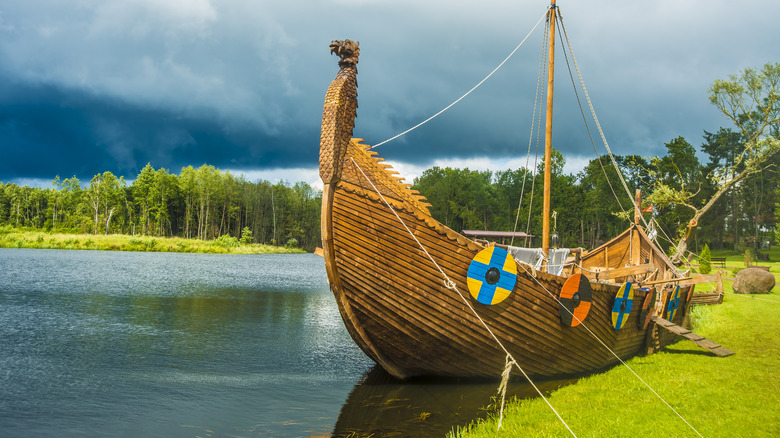The Dark Origins Of The London Bridge Is Falling Down Nursery Rhyme
Nursery rhymes, those infectious little ditties taught in preschools the world over, are often centuries old. Unsurprisingly, their meanings are often twisted, if not altogether forgotten, creating a weird contrast of happy little children singing songs about deadly tragedies. One of the more pervasive and mysterious nursery rhymes is "London Bridge Is Falling Down."
The nursery rhyme — often accompanied by a game where children pass under a "bridge" and are eliminated if they cross at the end of the rhyme — seems pretty straightforward: a bridge falls down. However, multiple theories exist as to which event the rhyme directly refers to. According to Mental Floss, it could simply refer to an old bridge in London deteriorating over time, a Viking attack 1,000 years ago, or even child sacrifice. While there's some doubt over whether the attack ever happened, the global popularity of the song lends the most credence to the theory of a Viking attack by Olaf II around the turn of the millennium.
A Viking poem provides a clue
According to Sporcle, a 13th-century collection of sagas and poems written in Old Norse describes the attack on London by the Norwegian Olaf II some two centuries prior. A 19th-century translation even has the lines, "London Bridge is broken down/Gold is won and bright renown." But since the nursery rhyme was already popular, it likely influenced the translation rather than vice versa. Elsewhere, the child sacrifice theory — which states that workers believed the bridge would be more stable if someone was entombed in the foundations — has no archeological evidence to support it.
Another mystery arises over the identity of the fair lady mentioned in the rhyme. Two consorts of British kings — Matilda of Scotland and Eleanor of Provence — are popular choices as they had responsibilities over the bridges. The fair lady could also simply be a reference to the River Lea, a tributary of the Thames. It's another layer of mystery that enshrouds a supposedly innocent ditty that is most likely referencing a brutal Viking attack over 1,000 years ago.

